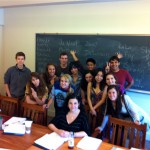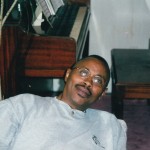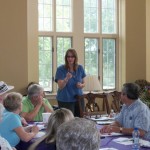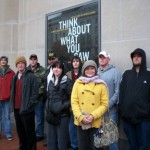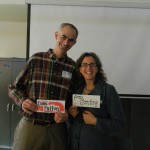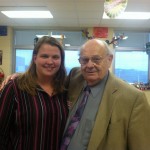“On Austrian Soil” – a reflection
Forums › 2023 Summer Seminar › On Austrian Soil 2023 Summer Seminar Responses: due MAY 30 › “On Austrian Soil” – a reflection
-
AuthorPosts
-
-
May 29, 2023 at 10:35 pm #31738
When I first read “On Austrian Soil” a few years ago, I recall being struck by Innsbruck’s “untold history” and what had been suppressed in Austria. Not surprisingly, the details of that cold snowy and windy day as the class toured Innsbruck had stayed with me more than any other part of the book. When I first read this book, I was in the thick of a racial reckoning, both privately and with many others in spring of 2020. I recognized a connection between Innsbruck’s way of hiding the uncomfortable truths about its past and the the way America hid its ugly truths too. As I reread this portion of the book, the revelations I had had returned with force. I continue to feel this is a salient connection in the story.
While that chapter and the conversations that came out of the teachers’ tour of the city was still remarkable to me, there were parts that stood out in new ways this time around as well. So many of the moments that gave me pause were not actually directly about Holocaust education. For one, I am in awe of the intimate, brave, and trusting relationship between Margaret and Sondra. Not only was their journaling open and revealing, but it also was quite brave to publish this discourse for the world to see. This was such a special time for both of them – to learn, grow, and ask hard questions. How special that we as readers get to glimpse into the unfolding of this powerful and special relationship. We can learn so much about ourselves and the world from honest conversations with others. It inspires me to take similar risks in my willingness to share, listen, and stay curious.
Running throughout this book are ideas about teaching and morality. Thinking about this often made me pause and ask a few a questions. Margaret noted Martin Luther King’s quote in her journal: “the hottest place in The hottest place in hell is reserved for those who, in times of moral crisis, maintain their neutrality.” This sentiment rings true to me, and I do feel a call to respond (responsibility – as Sondra later defines in a way that stuck with me) to injustices as a public school educator and as a human. The place my mind gets stuck often has to do with who defines what is moral. Hans noted that he is “not in the business of making better human beings…their values and their humanity are not my concern.” While this disconnect or missed opportunity to leave a bigger dent in this world than in mere academic development is discouraging, I do wonder sometimes if this hands-off approach is better than other situations. I know what I think moral actions look like, but I also know people who have different values than me who might disagree. They might say it is morally wrong to identify as a different gender. They might think that a woman’s choice about her body is morally wrong. I feel like this is the predicament we are currently in. Warring sides of controversial topics argue that their values and actions are rooted in good morals. How can we be so divided?
The final thought I want to share is about the power of writing and sharing our writing. The topics that are the most crucial to explore and dissect are often the topics loaded with emotion and personal strings that open us up to naked vulnerability. We could learn a lot from a lecture or documentary about the Holocaust – I have, in fact, gained quite a bit from these modes of learning. However, the personal connection, the learning that will lead to action, and the transformative reflection comes out of writing and discussion. As Sondra notes towards the end, “what began as a classroom inquiring has become a life-altering event.” Throughout the reading of this memoir, I was touched by the power of writing. Having looked at our agenda for our week in NYC, I am excited that we will have this opportunity numerous times that week.
-
June 10, 2023 at 5:21 pm #31799
Thanks for rereading OAS and for your careful and thoughtful response, Sandy. I agree that turning from the wrongs perpetrated on American soil is not unlike the Austrians who want to bury their history. As we know, it can only fester. Looking forward to meeting soon in person.
-
-
AuthorPosts
- You must be logged in to reply to this topic.
Recent Replies
Recently Active
-
Active 2 hours, 48 minutes ago
-
Active 5 hours, 1 minute ago
-
Active 1 day, 1 hour ago
-
Active 1 day, 2 hours ago
-
Active 4 days ago
- View All Members

